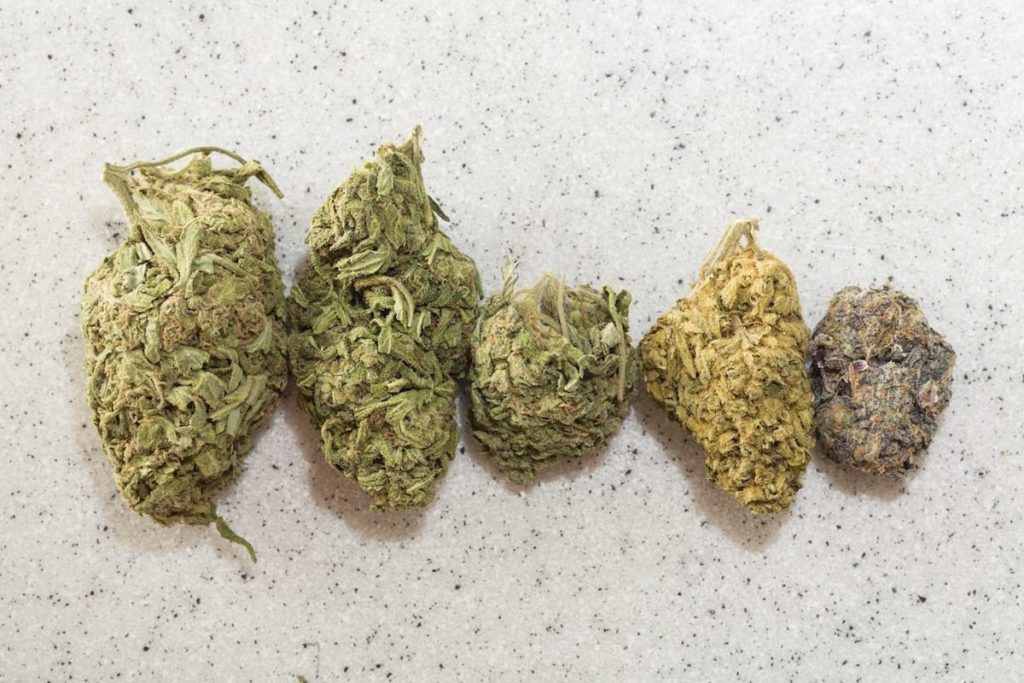People who consume the addictive drug marijuana have increased chances of acting in hostile and impulsive ways, the American authors of a new study report. Marijuana is widely thought to reduce one’s chances of acting in aggressive or violent ways. However, according to the results of a study published by a team of American researchers in January 2015 in the journal Drug and Alcohol Dependence, young marijuana consumers may actually experience a notable uptick in their tendency toward hostile thoughts and actions, whether or not they’re addicted to the drug. The researchers also concluded that addicted and non-addicted marijuana consumers may experience a significant increase in their tendency toward impulsive behaviors.
Marijuana Consumption and Addiction
Almost 20 million Americans consume marijuana at least once a month, according to nationwide figures compiled for the year 2013 by researchers affiliated with the federal Substance Abuse and Mental Health Services Administration. This number is the equivalent of between 7 percent and 8 percent of all individuals over the age of 11. More than 8 million of those individuals who consume the drug on a monthly basis also qualify as daily or near-daily consumers by using marijuana at least 20 out of every 30 days. The number of marijuana users increased slightly between 2012 and 2013, and intake of the drug is generally higher than in the first decade of the 21st century. The number of daily or near-daily consumers has risen substantially in the 2010s. When factors such as age at first use and level of use are not taken into consideration, about 9 percent of all U.S. marijuana consumers will develop an addiction to the drug and thereby meet the terms for a diagnosable mental health condition called cannabis use disorder. Among all people who qualify as daily or near-daily users (also known as habitual users), the rate of marijuana addiction stands at 25 percent to 50 percent.
Hostility and Impulsive Behavior
Psychologists and psychiatrists commonly view hostility as an inappropriate manifestation of anger, a natural human emotion that has its benefits in certain circumstances. Hostile people build up unfriendly or antagonistic feelings toward others and sometimes express those feelings through their real-world behaviors. The concept of hostility is closely tied to aggression, broadly defined as the willingness to commit overt acts of violence toward others. Psychologists and psychiatrists use the term impulsive behavior to identify actions taken with little or no advance consideration of potential outcomes or consequences. This type of behavior also commonly forms part of the connection between anger and the inappropriate manifestation of hostility or aggression.
Marijuana, Hostility and Impulsive Behavior
In the study published in Drug and Alcohol Dependence, researchers from the Yale University School of Medicine and Pennsylvania State University used a small-scale project involving 43 young adults to explore the potential link between addicted or non-addicted marijuana use and increases in hostility and impulsive behavior. All of the study participants were unaffected by any diagnosable addiction-related issues. Over a period of two weeks, each of the participants used a smartphone to answer detailed questions regarding such things as his or her level of marijuana intake, tendency toward hostility with others, tendency to act in impulsive ways and level of alcohol and cigarette/tobacco intake. After completing a statistical analysis of the participants’ responses, the researchers concluded that, compared to days on which marijuana use does not occur, consumers of the drug experience a notable increase in their hostile reactions to others and their real-world hostile actions on days when they consume marijuana. The researchers also concluded that, compared to days on which marijuana use does not occur, consumers of the drug experience a notable increase in their impulsive behaviors on days when they consume marijuana. In addition, this increase in impulsive behaviors continues to exert its effects on the day following marijuana consumption. Crucially, the researchers found that the specific rate of marijuana use in the individual does not have a noticeable impact on these trends. Similarly, an individual’s level of alcohol intake fails to alter the link between marijuana, hostility and impulsive behavior. The study’s authors believe their small-scale findings point toward the need for larger research projects that explore the influence that marijuana consumption has on the hostile and impulsive thoughts and behaviors of even casual users.

